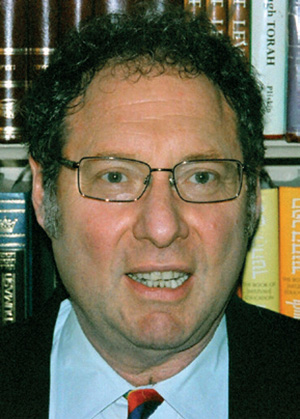
Is it the threat to Israel? No. Is it worldwide anti-Semitism? No. The great tragedy destroying the Jewish people is assimilation. Some scholars believe we have lost more Jews to assimilation than to all the Holocausts, Crusades, pogroms and Inquisitions combined.
But you ask, why is it important to me? Why is it important? The Rambam answers it very simply. “All the prophets commanded teshuva and Israel will only be redeemed through teshuva.” This is the idea of group reward and punishment. It is in the Shema recited daily and in the portion of the tochacha, the blessings and the curses; if the Jewish people abandon the Torah we will be exiled and punished with sufferings.
Why is the mitzvah of Hoche’ach toche’ach et amitecha—to correct others, to influence others, when they are not observing mitzvot—an ignored mitzvah? The Rambam teaches that the mitzvah to love Hashem includes the requirement to mention God’s name, and to teach strangers and gentiles about His ways. Why are we so timid to talk about God and religion outside of our inner communities? At Mt. Sinai, when God told Moshe we are His chosen people, he told Moshe we are a mamlechet kohanim, a kingdom of priests. Sforno explains that each one of us has a mission to teach and spread the idea of ethical monotheism to the world.
Here are many examples and ideas of what many of us can and must do in some way. Of course, the only effective way to influence Jews is with sincere warmth, friendship and respect.
Purchase a subscription to a Jewish newspaper for a relative, even if it is a secular Jewish newspaper. Just having a Jewish newspaper in the home can help Jews stay connected to the community. Invite a neighbor, a relative, a coworker for a Shabbat dinner where they can experience the warmth, the beauty, the greatness of Shabbat. How powerful an experience: a well-dressed family sitting together without weekday distractions, talking to and caring about each other, singing Eishet Chayil, Shalom Aleichem, the reciting of a dvar Torah on an ethical or spiritual thought, with Shabbat candles and a well-set table. “For the price of a chicken, you can save a Jew,” teaches, Rabbi Ephraim Buchwald of NJOP.
When invited to an engagement party, give a mezuzah as a gift, making a comment that the Jewish home is a home of respect, charity, friendship and love, and the mezuzah is a symbol of the Jewish home. At a bar mitzvah, besides a monetary gift, give a book to the teen on basic Jewish observance and thought written specifically for teens. The monetary gift can even be an Israel Bond, reminding the boy and his family to stay connected to Israel.
At every large get-together, like a Thanksgiving dinner, Labor Day family barbecue, graduation party, Chanukah party or even a shiva for a non-religious person, someone should stand up and say a few words of spiritual significance. Because Judaism has something to say about every and any occasion.
Why do we give mishloach manot on Purim to our best friends? Purim was about the assimilating community of Persia doing teshuva, fasting for Esther and returning to God; shouldn’t we give mishloach manot to non-religious Jews, our neighbors, Jews at work or the local pharmacist, with a message that Purim is about the continued survival of our great religion that teaches mutual responsibility and morality?
There is no reason to be defensive and introverted when people at work discover we are Orthodox. They should not think we are living a superstitious, old-fashioned lifestyle filled with negative rules about Shabbat observance and keeping kosher. We should have courage and be knowledgeable about our commitment. Our friendships with others should develop to the point that they get to know and respect us, and we can even share an ethical teaching from Pirkei Avot, or they can accept a book as a gift from us such as “Nine Questions People Ask About Judaism” by Dennis Prager, or “Permission to Believe: Four Rational Approaches to God’s Existence,” by Lawrence Keleman, or a book by Rabbi Jonathan Sacks.
Give tzedakah boxes to friends and relatives, asking them to teach their children to put a few coins in weekly, because charity and caring about others is a Jewish ethical value. I have obtained hundreds of charity boxes for free from many organizations over the years and given them all out.
If your child is involved with NCSY and has a not-yet religious peer, then perhaps you can invite that peer along with her/his parents to a Shabbat meal.
Volunteer to teach for Aish HaTorah, Partners in Torah, the Jewish Learning Experience or with NJOP. Even if you only teach Hebrew you can indirectly teach something about the bracha of lighting Shabbat candles and how beautiful the mitzvah is.
Rav Yosef Yozel Hurwitz of Novardok taught, “In the future, every individual will be asked why he did not light up the world like the sun at noontime.” Let’s light up the world!
By Martin Polack
Martin Polack is a business analyst and has been involved in outreach and Jewish education for many years.










